Курс по истории аналитической философии. От логико-философских идей Г. Фреге до скептического решения С. Крипке.
На английском языке.
This course introduces analytic philosophy, the primary style of doing philosophy since roughly 1900 in the English-speaking world. We will examine some of the key thinkers and texts in that tradition and evaluate their arguments and theories. Analytic philosophy focuses on themes and methods with a long philosophical history: Aristotle, Aquinas, Descartes, Leibniz, Locke, Hume, Bentham, and Mill are all in a sense analytic philosophers. But the contemporary analytic tradition began with a rebellion against the idealism of Kant, Hegel, and other thinkers, which had dominated the 19th century. Gottlob Frege, a German mathematician, began the attack, using logical tools to undermine idealist accounts of mathematics, language, and logic while posing new philosophical puzzles. G. E. Moore, Bertrand Russell, and Alfred North Whitehead soon joined the attack, as did Ludwig Wittgenstein and the philosophers of the Vienna and Berlin Circles. Moore and Russell defended realism, the view that some things are independent of mind, and developed comprehensive philosophical views. The Vienna Circle, in contrast, tended to think of philosophical problems as arising from misuses of language, and saw the analysis of language as the key to their solution. They took scientific language as their model. Hume was their hero. Metaphysics became a bad word, and epistemology became the philosophy of science. Ethics sank into disrepute. Around mid-century, a group of philosophers centered at Oxford focused instead on natural language, and developed philosophical perspectives granting it center stage. Around the same time, Carl Hempel recounted the difficulties the philosophers of the Vienna Circle faced in making their ideas about meaningfulness precise. W. V. O. Quine began his attack on the central theses that Moore, Russell, and Vienna Circle thinkers shared. Wilfrid Sellars launched a more general assault against their atomism. Wittgenstein dramatically reshaped his earlier views on language. Saul Kripke and David Lewis, finally, introduced ways of understanding necessity and normativity that brought basic questions of metaphysics back to the fore.
3. Frege on Sense and Reference
5. Russell on Denoting, Part 2
7. Russell on Belief and Ontology
9. Logical Empiricism: Criteria and Protocol Sentences
10. Ayer's Criteria of Verification
11. Gilbert Ryle, Systematically Misleading Expressions
12. Carnap and Ryle on Dispositions
13. Quine's Logistical Approach to Ontology
16. Quine on Analyticity and Other Dogmas
17. Quine on Carnap on Logical Truth
18. Quine on Truth by Convention
19. Carnap on Empiricism, Semantics, and Ontology
20. Sellars on Foundationalism
21. Sellars on the Logic of Looks
22. Sellars on the Inconsistent Triad
23. Sellars and the Framework of Thoughts
26. Quine on the Indeterminacy of Translation
27. Kripke on the Descriptive Theory of Names
28. Kripke and the Causal Picture of Names
29. Kripke on Rigid Designators
30. Gareth Evans on the Causal Theory
31. Kripke on Essential Properties
32. Kripke on the Wittgensteinian Paradox
33. Kripke and the Skeptical Solution
34. Kripke on Wittgenstein on Forms of Life
35. Blackburn on the Skeptical Solution
↑ Лекция 1. Philosophy in One Lecture
↑ Лекция 2. Analytic Philosophy: Frege
↑ Лекция 3. Frege on Sense and Reference
↑ Лекция 4. Russell on Denoting
↑ Лекция 5. Russell on Denoting, Part 2
↑ Лекция 6. Russell's Logical Atomism
↑ Лекция 7. Russell on Belief and Ontology
↑ Лекция 8. Wittgenstein's Tractatus
↑ Лекция 9. Logical Empiricism: Criteria and Protocol Sentences
↑ Лекция 10. Ayer's Criteria of Verification
↑ Лекция 11. Gilbert Ryle, Systematically Misleading Expressions
↑ Лекция 12. Carnap and Ryle on Dispositions
↑ Лекция 13. Quine's Logistical Approach to Ontology
↑ Лекция 14. Quine on What There Is
↑ Лекция 15. Quine's Ontology
↑ Лекция 16. Quine on Analyticity and Other Dogmas
↑ Лекция 17. Quine on Carnap on Logical Truth
↑ Лекция 18. Quine on Truth by Convention
↑ Лекция 19. Carnap on Empiricism, Semantics, and Ontology
↑ Лекция 20. Sellars on Foundationalism
↑ Лекция 21. Sellars on the Logic of Looks
↑ Лекция 22. Sellars on the Inconsistent Triad
↑ Лекция 23. Sellars and the Framework of Thoughts
↑ Лекция 24. Quine on Modality
↑ Лекция 25. Quine on Quantifying In
↑ Лекция 26. Quine on the Indeterminacy of Translation
↑ Лекция 27. Kripke on the Descriptive Theory of Names
↑ Лекция 28. Kripke and the Causal Picture of Names
↑ Лекция 29. Kripke on Rigid Designators
↑ Лекция 30. Gareth Evans on the Causal Theory
↑ Лекция 31. Kripke on Essential Properties
↑ Лекция 32. Kripke on the Wittgensteinian Paradox
↑ Лекция 33. Kripke and the Skeptical Solution
↑ Лекция 34. Kripke on Wittgenstein on Forms of Life
↑ Лекция 35. Blackburn on the Skeptical Solution
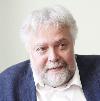
Спецкурс профессора, д.ф.н., чл.-корр. РАН В.В. Васильева (кафедра истории зарубежной философии философского факультета Московского университета)
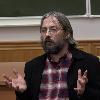
Обзорный курс Дмитрия Владимировича Бугая (кафедра истории зарубежной философии философского факультета Московского университета)
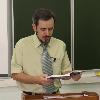
Курс лекций от Фалева Егора Валерьевича (кафедра истории зарубежной философии философского факультета Московского университета)
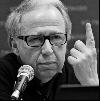
Курс лекций Игоря Сергеевича Дмитриева, доктора химических наук, профессора кафедры философии науки и техники философского факультета СПбГУ.
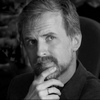
Курс из 4 лекций читает Роман Викторович Светлов
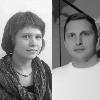
Данный курс посвящен вопросу о степени нашего контроля за собственной жизнью. Являемся ли мы продуктом обстоятельств или обладаем способностью самостоятельно выбирать своё будущее?
Выделите её и нажмите Ctrl + Enter

 In English
In English